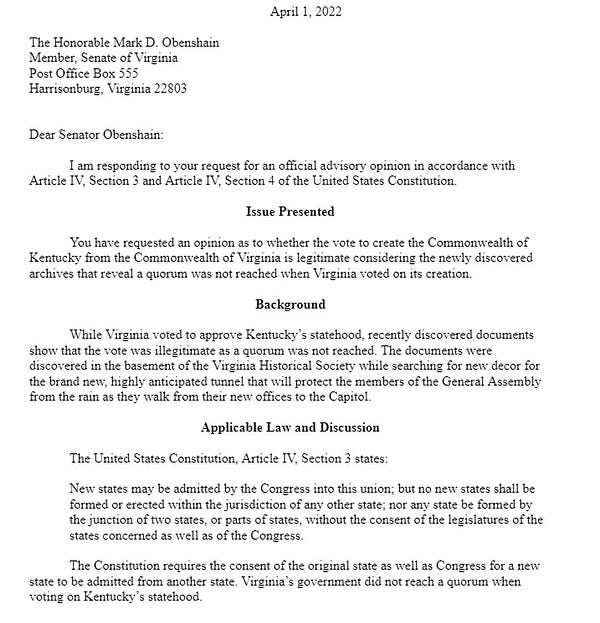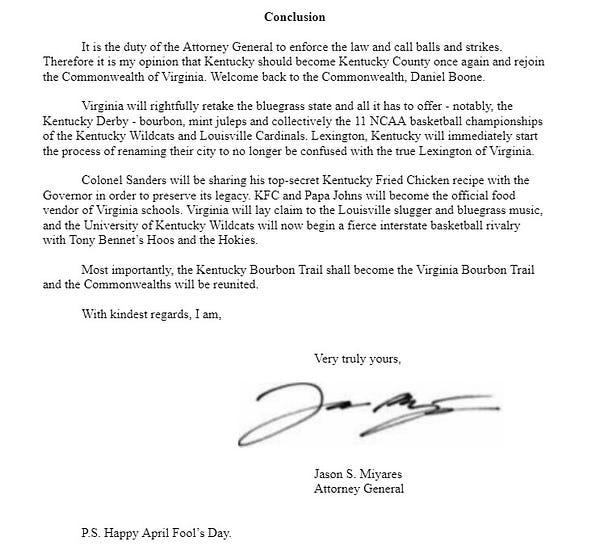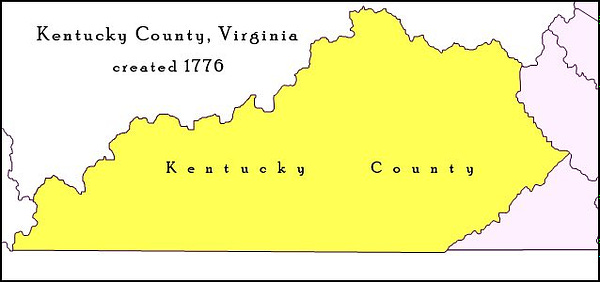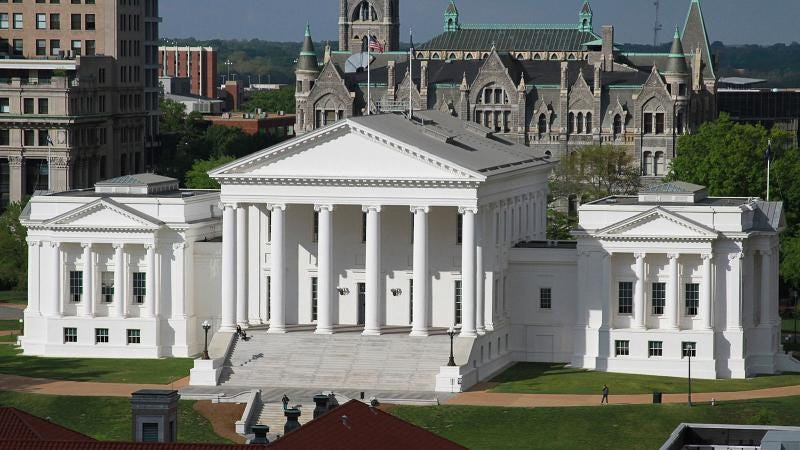Hotel workers will complete training to combat human trafficking
20 education organizations sent Youngkin and budget negotiators a letter Friday
This is a daily newsletter covering Virginia politics from top to bottom. Please consider becoming the ultimate political insider by supporting non-partisan, independent news and becoming a paid subscriber to this newsletter today.
Executive Schedule
10:45 AM: GOVERNOR GLENN YOUNGKIN VISITS THE DEPARTMENT OF SOCIAL SERVICES
LOCATION: Department of Social Services
12:30 PM: GOVERNOR SPEAKS AT LATINO BUSINESS LEADERS FORUM
LOCATION: Wooden Spoon
The rundown
A group of 20 education organizations sent a letter to Governor Glenn Youngkin and several budget negotiators asking them to quickly finalize the state budget
Hotel workers will complete training to combat human trafficking
Bill will allow homeless youth to access shelter, services without guardian
Spanberger advanced legislation in the House
20 educations organizations sent a letter to Youngkin and budget negotiators Friday
A group of 20 education organizations, including members of the Fund Our Schools Coalition, as well as the Virginia Association of Colleges and Teacher Educators and the Virginia Professors of Educational Leadership, sent a letter to Governor Glenn Youngkin and several budget negotiators asking them to quickly finalize the state budget and include significant investments in school staffing, teacher and staff pay raises, school construction and renovation, and protection of public school resources.
Signatories made specific budget recommendations for several key priority areas in the letter. The education groups outlined investments that would make progress toward implementing the Board of Education’s prescribed Standards of Quality, are grounded in evidence-based approaches that improve student outcomes, and are informed by stakeholders who work, learn, and collaborate in schools.
“Schools are facing a staffing crisis that is only projected to get worse over the coming years. We desperately need state lawmakers to deliver on their election promises in this final budget and provide robust teacher and staff salary increases that gets Virginia closer to the national teacher pay average,” said Dr. James J. Fedderman, President of the Virginia Education Association, “Lawmakers must also improve learning and working conditions by providing more adequate funding for key support staff positions that allow our schools to provide essential student services.”
Legislators are coming back to Richmond on Monday to try and complete the budget negotiations.
“It is critical that lawmakers provide the state with a finalized budget soon, and vitally important for our children that the budget include these key items for school funding,” said Brionna Nomi, Interim Co-Director of the Youth Justice Program at the Legal Aid Justice Center. “We desperately need new school buildings and buildings that are modernized, public school money to be protected, and for our children to be appropriately supported by well-compensated staff."
Signatories of the letter included: Legal Aid Justice Center, The Commonwealth Institute for Fiscal Analysis, Virginia Education Association, New Virginia Majority, Virginia Educators United, Virginia Excels, Virginia Parent Teacher Association, Edu-Futuro, American Federation of Teachers Virginia, Voices for Virginia’s Children, Virginia School Counselor Association, Virginia Organizing, Virginia Retired Teachers Association, Richmond Region League of United Latin American Citizens, Emgage, Side by Side, Rise for Youth, Communities in Schools Virginia, Virginia Association of Colleges and Teacher Educators, and Virginia Professors of Educational Leadership.
Spanberger advanced legislation in the House
The House of Representatives passed the Affordable Insulin Now Act on Thursday. The bill was co-sponsored by Rep. Abigail Spanberger (D-VA07) and is aimed at lowering the price of insulin by capping the out-of-pocket cost of insulin at $35 per month.
Hotel workers will complete training to combat human trafficking
By Joe Dodson, Capital News Service
RICHMOND, Va. -- After a few lawmakers missed time during the session due to COVID-19, Del. Shelly A. Simonds, D-Newport News, said she was thrilled to see all 100 members of the House unanimously pass a bill requiring hotels to provide human trafficking training for employees.
“It was really exciting for me to watch the vote because I didn’t know how it was going to go,” Simonds said. “We haven’t had 100 to zero very often.”
House Bill 258 will authorize the Department of Criminal Justice Services to create a free online mandatory course to help hotel employees better recognize and report human trafficking. After passing through the House in February it passed the Senate 36-4 on March 11.
Anyone employed by a hotel as of July 1 has to complete the required training course by Dec. 31.
In a survey conducted by the Polaris Project, 75% of human trafficking survivors reported coming into contact with hotels at some point during their trafficking situation. The Polaris Project collects data on and works to combat human trafficking, in addition to maintaining the U.S. National Human Trafficking Hotline.
Robert Melvin, director of government affairs for the Virginia Restaurant, Lodging and Travel Association, said that organizations like the Polaris Project have helped to develop onboard training courses for major brands like Marriott International and Hilton Hotels.
The hospitality industry has made combating human trafficking a priority, Melvin said.
“It’s something that we take very seriously,” Melvin said. “We’ve worked really hard to curtail on our own as an industry.”
A provision in the bill states that hotel employees can use alternative online or in-person training courses like those already required by major brands, if approved by the Department of Criminal Justice Services.
Simonds said that the bill will help raise all hotels to the standards of those with training courses already in place.
“I think that there are smaller hotels that aren’t part of these large chains that need support and need a way for their employees to complete this training,” Simonds said.
The Virginia Restaurant, Lodging and Travel Association worked with Simonds to create a provision that expedites the process of getting major brands current training courses approved by the DCJS, according to Melvin.
DCJS would need to approve or disapprove the use of an alternative course within 60 days of it being submitted for approval, according to the final version of the bill.
The bill could also help smaller hotel owners become part of larger brands quicker by already having the standard of human trafficking training courses required for employees throughout the state, Simonds said.
“In order to move up and become a Holiday Inn you need to show that you do have certain standards,” Simonds said. “This is going to lift up the standards for everyone in the hotel industry.”
Sen. Tommy Norment, R-Williamsburg, asked Simonds in a Senate committee hearing if hotel proprietors would have to pay any cost to the DCJS. Lawmakers substituted the bill to state that it would be free for hotel owners and their employees to take the course.
Simonds proposed almost $233,000 each year for the next two years in the budget to implement an online training platform. General Assembly members return next week to approve the final budget.
Questions were raised during the Senate Judiciary Committee hearing about which employees would be required to complete the training. Simonds added a substitute to restrict the required training to public facing employees, including housekeepers, bartending staff and management.
“Training housekeepers could be the most important part of this bill,” Simonds said. “Because they see things.”
An estimated 1,500 hotels and over 116,000 hotel employees would be subject to the requirements, according to the bill’s impact statement.
Despite the substitutions, the bill still serves its purpose of empowering bystanders to report human trafficking, Simonds said. She said she hopes to pass similar legislation next session focused on short-term rental properties like Airbnb and Vrbo.




Bill will allow homeless youth to access shelter, services without guardian
By Grace Bost, Capital News Service
RICHMOND, Va. – A bill that advocates say will allow homeless youth to access shelter and housing services for the first time without a guardian passed both chambers of the Virginia legislature.
The measure was part of a two-bill package created by a coalition of advocacy groups, with its companion bill dying early in the session in a House committee.
Del. Eileen Filler-Corn, D-Fairfax, introduced House Bill 717. Any child over age 14 would be considered an adult to give consent to housing and other services. The bill focuses on accessibility of care for unaccompanied homeless youth, which is defined in the text of the bill as a homeless child or youth who is not in the physical custody of a parent or guardian.
The measure passed unanimously in the House on Feb. 14, after being laid on the table early in the session then brought back the same day. It passed the Senate with amendments on March 3.
This will mark the first time unaccompanied youth will be able to access homeless shelters without parental consent, according to Allison Gilbreath, the policy and programs director for Voices for Virginia’s Children. The organization advocates for public policy to improve the lives of children in Virginia, according to its website.
“We know that with this bill a lot of young people who may have had nowhere to go previously will now finally be able to access safe shelters and be in the care of safe adults,” Gilbreath said.
House Bill 353 was introduced by Del. Rodney Willett, D-Henrico, and would have allowed unaccompanied homeless youth ages 14 and older to be deemed adults for the purpose of consenting to surgical or medical examination or treatment, with the exception of abortion or sterilization. HB 353 failed early in the legislative session, but parts of it were incorporated into the final version of HB 717.
The revised version of HB 717 requires the Department of Social Services to establish a work group tasked with coming up with recommendations for authorizing homeless youths to consent to medical care. The group will be required to report recommendations by the end of the year.
Kimberly Embe, a graduate student who spoke in support of Willett’s bill at a House subcommittee, said she would have benefited greatly from being able to make decisions about her health while experiencing homelessness.
“It was already a difficult experience to navigate, and that was exacerbated by my inability to make any decisions pertaining to my wellbeing, especially around medical care and housing,” Embe said in a committee meeting. “I had no options really but to continue to relive my trauma as I tried to navigate life in these systems.”
Lawmakers have a hard time understanding the experiences of homeless youth like Embe, according to Gilbreath.
“We have a lot of young people who are in housing insecure places and sometimes what feels stable was already insecure to begin with, and then something occurred and now suddenly they're also homeless all at the same time,” Gilbreath said. “It might be very instant, where they were barely getting safe housing as it was and now they don't have anything.”
Rodd Monts, director of state policy for SchoolHouse Connection, hopes that lawmakers will reconsider the measures allowing unaccompanied youth to consent to medical care. SchoolHouse Connection is a national nonprofit organization working to overcome homelessness through education.
“It could go a lot further and we are hoping that next session this issue gets revisited and some of the things that we didn't see included here are included next session,” Monts said.
An estimated 5,700 people were homeless in Virginia in 2019, according to the U.S. Department of Housing and Urban Development’s Annual Homeless Assessment Report to Congress. Almost 700 people are experiencing homelessness in the Greater Richmond Region as of July 2021, according to Homeward, a support agency working to end homelessness in the Greater Richmond region. There are almost 290 reported homeless youths in Virginia, according to a 2019 report from the National Alliance to End Homelessness.
The new law, which goes into effect July 1, is a step in the right direction, Monts said.
“It represents a first step in providing greater access to housing and shelter related services for those unaccompanied youth,” Monts said.
Youngkin administration faults aging Virginia elections data system - Washington Post
by Greg Schneider
The administration of Gov. Glenn Youngkin (R) says it will shut down the state’s elections registration and data system for a few days over each of the next six weeks because the aging network is far behind on a planned update.
Problems with the circa-2007 system — known as the Virginia Election Registration and Information System, or VERIS — have been documented since at least 2018, when a legislative oversight committee recommended considering a replacement. The Joint Legislative Audit and Review Commission faulted the system for having “longstanding reliability problems that continue to slow its processing speed during periods of peak usage.”
Tax breaks are biggest difference between state budget negotiators, but there's a gap in SNAP funding too - WVTF
By Jahd Khalil
State lawmakers will return to Richmond on Monday to start a special session focusing on the state budget, but they will also have to address a difference between competing budgets on funding for administrative costs for a recently expanded Supplemental Nutrition Assistance Program
SNAP, formerly known as food stamps, provides monthly benefits to purchase food.
ONE IN FOUR: A special report on sexual assault at JMU -
More than one in four college-aged women will experience non-consensual sexual contact during their time in college, according to data from The Chronicle of Higher Education. At JMU, that’s approximately 2,800 undergraduate women.
Sexual misconduct is an endemic problem across the entire U.S. higher education system — JMU isn’t alone, or unique. Approximately 176 out of every 1,000 undergraduate women in college experienced “completed sexual assault,” according to a 2015 study from the U.S. Bureau of Justice Statistics (BJS). Approximately 54 out of every 1,000 undergraduate women experienced rape, according to the same BJS study study.
Disputed school admissions policy OK’d pending appeal - Associated Press
By DENISE LAVOIE
A federal appeals court has granted a request from a northern Virginia school system to continue using a challenged admissions policy at a highly selective high school while it appeals a ruling that found the policy discriminates against Asian American students.
A three-judge panel of the 4th U.S. Circuit Court of Appeals said in a ruling Thursday that Fairfax County Public Schools can continue to use its new admissions policy at Thomas Jefferson High School for Science and Technology.
Navy veteran Merritt Hale challenging Ben Cline for Republican nomination in 6th - Roanoke Times
by Luke Weir
A former Navy officer who now works for a defense contractor is waging an intraparty challenge to incumbent U.S. Rep. Ben Cline, R-Botetourt.
Virginia native Merritt Hale, 28, said he sees where more can be done in the 6th Congressional District.
National Headlines
Job creation, openings at near-record levels as jobless claims approach historic lows
‘The baggage is too heavy’: GOP foes tee up last-ditch effort to sink Herschel Walker
Peace talks uncertain as Russia claims Ukraine attacked Belgorod fuel depot
Cloud of notoriety builds over Cawthorn after sex-and-drugs claims
A Belarusian battalion fights in Ukraine ‘for both countries’ freedom’
Amazon union votes too close to call after first day of count
From Russia with money: Silicon Valley distances itself from oligarchs
‘Recognition of failure’: A shift urged in global vaccination strategy
U.K. spy chief: Russian soldiers in Ukraine sabotaged own equipment
Pope apologizes for some Catholics’ ‘deplorable conduct’ in Canada’s Indigenous residential schools
What does the ‘Great She-cession' mean for the future of our economy?
Human blueprint breakthrough: Scientists publish ‘gapless’ human genome




